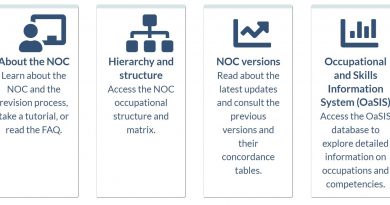Economic & Family Classes Pilot Extended to 2023: Facilitating the PR Applications of Certain Family Members
Pilot program to exempt permanent residence applicants in the family class or the spouse or common-law partner in Canada (SCLPC) class from paragraph R117(9)(d) or R125(1)(d) exclusion
Foreign nationals applying to immigrate to Canada are required to both declare and have all of their family members (spouse or common-law partner and children) examined, even if those family members are not accompanying the principal applicant.
Failure to have a non-accompanying family member examined results in a lifetime exclusion in being able to sponsor that person under the family class or the spouse or common-law partner in Canada (SCLPC) class, per paragraph R117(9)(d) or R125(1)(d) of the Immigration and Refugee Protection Regulations.
To address potential concerns about the impact this provision may have on families, the Government of Canada introduced a 2-year pilot project via a temporary public policy(see the following Achieved Information) to facilitate the immigration of certain sponsored foreign nationals excluded under paragraph R117(9)(d) or R125(1)(d). This public policy was announced by the Minister of Immigration, Refugees and Citizenship on May 31, 2019, and was originally planned to be in effect from September 9, 2019 to September 9, 2021.
However, the impact of COVID-19 on the processing of applications, as well as the results of an analysis of the pilot, has warranted extending the pilot by implementing a subsequent public policy for an additional 2 years, effective September 10, 2021.
This public policy will be in effect from September 10, 2021 to September 9, 2023. The temporary public policy applies to all of the following applications:
- applications still in process on May 31, 2019 (no final decision made before that date)
- applications received between May 31, 2019, and September 9, 2023
- applications pending reconsideration between May 31, 2019, and September 9, 2023
On this page
- Eligibility
- Cases where the public policy does not apply
- Sponsorship eligibility assessment of family class applications
- Processing of permanent residence applications
- Transitional cases
- Appeals before the Immigration Appeal Division
- Investigation due to possible misrepresentation
Eligibility
All of the following requirements must be met for the public policy to apply and to exempt applicants from the paragraph R117(9)(d) or R125(1)(d) exclusion:
- The foreign national has applied as either of the following:
- a spouse or a common-law partner under the SCLPC(the spouse or common-law partner in Canada) class
- a spouse, a common-law partner or a dependent child under the family class
- The sponsor was granted permanent residence status in Canada as any of the following:
- a resettled refugee and their dependants (such as a Convention refugee or a person in similar circumstances, or an applicant under the country of asylum class)
- a protected person and their dependants
- a sponsored spouse, a common-law partner, a conjugal partner or a dependent child under the family class
- a sponsored spouse or a common-law partner under the SCLPC class
- The foreign national, if declared and examined at the time their sponsor immigrated to Canada, would not have made their sponsor ineligible in the class under which the sponsor applied.
Dependent children have to meet the definition of a dependent child per the lock-in date policy. For family class applications, the age lock-in date is the date their application for permanent residence is received by the department.
For applicants whose sponsor resides in the province of Quebec, the sponsorship undertaking must be approved by the Government of Quebec’s Ministère de l’Immigration, de la Francisation et de l’Intégration (MIFI).
Cases where the public policy does not apply
The public policy does not apply if the applicant is already exempt from the paragraph R117(9)(d) or R125(1)(d) exclusion as a result of the exception in subsection R117(10) or R125(2), where an officer has determined that under the Immigration and Refugee Protection Act, or the former Act, the foreign national was not required to be examined.
The public policy does not apply if the sponsor was granted permanent residence status under any other immigration category not specified by the public policy, including any of the following:
- any of the economic classes (See details in the followings)
- other members of the family class (such as parents and grandparents and their dependent children, orphaned relatives and other relatives)
- permit holder class
- permanent residence from within Canada based on humanitarian and compassionate (H&C) grounds
Economic Classes
- Federal skilled workers (FSW)
- Canadian experience class (CEC)
- Federal skilled trades (FST)
- Start-up business class
- Investors (closed OP 9 (PDF, 206.88KB))
- Entrepreneurs and self-employed persons (closed OP 8 (PDF, 488.13KB), IP 7 (PDF, 164.76KB))
- Self-employed persons class
- Quebec Economic Classes
- Provincial nominees
- Atlantic Immigration Pilot Programs
- Caregiver classes
- Rural and Northern Immigration Pilot Program
- Agri-Food Pilot (AFP)
- Temporary Resident to Permanent Resident Pathway
The public policy does not apply if the foreign national, if declared and examined at the time their sponsor immigrated to Canada, would have made their sponsor ineligible in the class under which the sponsor applied. For example, if the sponsor
- immigrated as a spouse, but was married to the current applicant when the sponsor became a permanent resident (that is, was in a bigamous or polygamous relationship)
- immigrated as a dependent child of a principal applicant (including an applicant in a refugee category) or as a dependent child under the family class, but did not declare their spouse or common-law partner, so that they could be considered as a dependent child
- would have had to meet financial requirements under the family class or the SCLPC class if the dependent children of a sponsored dependent child were disclosed
- came to Canada through a program that required them to have no dependants





